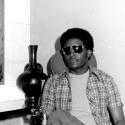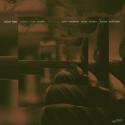Could melancholia be an elixir of creative youth? Or is it that sad people were never really that youthful, so age suits them? Certainly it seems that there was something in the water for so many of the foundational 80s indie bands who dealt in sadness, pain and existential angst that makes longevity suit them: The Jesus & Mary Chain, Dinosaur Jr., Throwing Muses, Ride, Slowdive just for starters have all somehow ambled into the 2020s on the creative form of their lives. And now the daddies of them all, The Cure, have clearly cottoned on and joined the forlorn party, because this album – their 14th in total and first in 16 years – absolutely stands with the best they’ve made.
It’s not that they ever exactly fell off. The five albums they made after their 1980s imperial phase were never terrible, had strong songwriting throughout, and were certainly enough to keep them up in the global big league – but there was a sense of going through the motions, the records felt a bit like a tailing-off, and after 2008’s 4:13 Dream, it seemed like The Cure were going to be happy to be a “heritage act”. So when some highly dramatic new songs started popping up in live sets recently, it was a pleasant surprise, but not much could have prepared fans of the band for this.
Songs of a Lost World taps straight back in to the period before Robert Smith and his various associates started to coast. Sonically and structurally, this takes its cues from 1989’s Disintegration and even more from the most epically swooning and high-drama parts of the sprawling 1987 Kiss Me Kiss Me Kiss Me. Yet it’s not a throwback. At 65, Smith is staring mortality in the face: these are songs of endings and finality, and the motif of the elusive girl (see classics like “The Caterpillar”, “A Forest”, “Just Like Heaven”) is still here, but he desperately asks her to “promise you’ll be with me in the end”. There’s fear, doubt and war in the lyrics, but in a strange way the classic Cure embracing of fragility and darkness is more comforting than ever before.
The sound doesn’t rest on laurels either: it crackles with excitement at what the studio can do, whether that’s lush orchestral arrangements (“And Nothing is For Ever”), borderline industrial gothic doom (“Warsong”), the kind of heavy-footed yet weirdly infectious wah-wah funk rock The Cure first tried in “Never Enough” (“Drone Nodrone”), even techno-like filtered string pads (“I Can Never Say Goodbye”). Crucially there’s no end of subliminal detail: little abstract flourishes where it’s hard to tell if they’re synthesised or artefacts of guitar distortion or drum echo, but which are very intentionally incorporated into the big picture. So while in certain senses, Smith has tapped into the inspiration of the past and created an archetypal The Cure album, in other ways, of all its sense of impending death it doesn’t feel like saying goodbye in any way, but - as ever with Smith, said in a soft voice, but backed up with huge artistic genstures - “hello, we’re back!”
Listen to "Alone":















Add comment